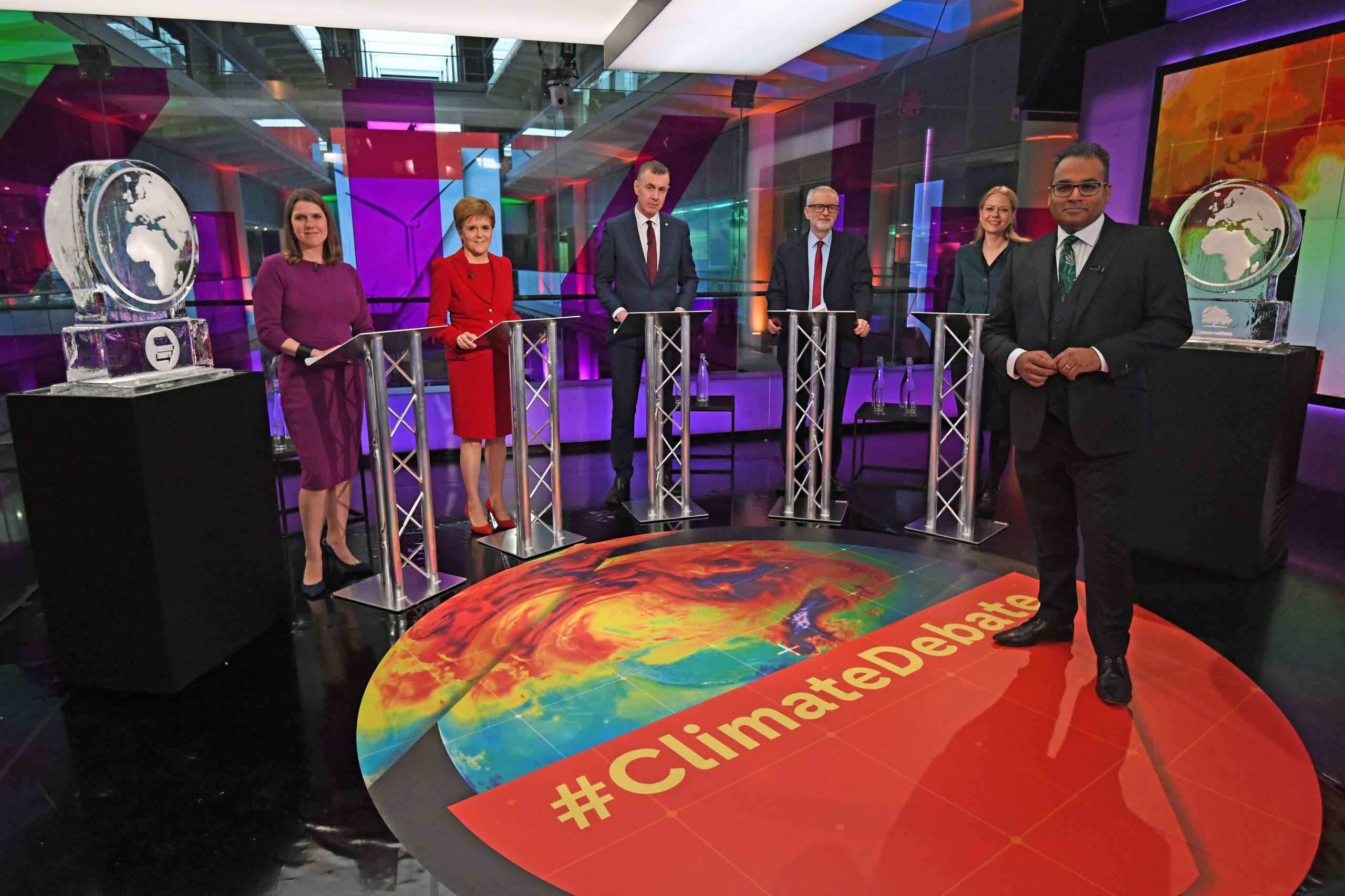
Last night saw the leaders of Labour, the Liberal Democrats, the SNP, Plaid Cymru and the Green Party take part in a debate on climate change on Channel 4, while the leaders of the Conservative and Brexit Party were instead represented by two melting blocks of ice, after Boris Johnson and Nigel Farage declined to participate.
The Conservatives are threatening to take Channel 4 to Ofcom, but the broadcaster’s rights are clear: it has an obligation to grant an equal opportunity to the leader of each party, but if those leaders decline then Channel 4 can respond as it wishes. But the complaint – and the threat reportedly made by the Tories to revisit Channel 4’s license after the election – is the latest example of the ruling party’s willingness to break norms to avoid scrutiny.
And frankly that party is right to do so, as the consequences for norm-breaking are proving to be so low as to be non-existent. Thanks to the licence fee, the BBC is the single dominant media outlet in this country, both in broadcast and online, but it has shown itself to be either unable or unwilling to effectively punish the government. Both Johnson and Corbyn will dodge the BBC’s seven-way debate tonight, and it remains an open question whether Johnson will take part in a half-an-hour long BBC interview with Andrew Neil, as Jeremy Corbyn and Nicola Sturgeon have already done and as Jo Swinson and Nigel Farage will do.
The BBC has badly bungled the affair. For a start, we’re now a democracy in which a quarter of the votes are cast by post and many of those votes will be cast this week. Sturgeon and Corbyn failed to seize the opportunity that was presented to them in having their interviews this week, with both leaders being badly mauled by Neil, but at least they did have that opportunity. That Swinson’s has been scheduled for 6 December, after most postal votes will have been sent off, is unfair to the Liberal Democrats. Spreading the interviews out also gave Boris Johnson the chance to avoid doing his altogether, while still benefiting from his main rivals in England and Scotland stepping into the bear pit.
There’s a simple trade-off here. The Conservatives think, thus far rightly, that the BBC will never say, look, if you can’t turn up for a seven-way debate and a proper sit-down interview in prime time, then you can’t have the soft-focus, light entertainment interviews about how best to prepare a scone that all party leaders crave at election time.
The Conservatives are absolutely correct to think that they can cherrypick appearances on our main broadcaster to allow for minimum accountability and maximum exposure. And when you can do that with an organisation that, thanks to its online reach, is the main news source for the overwhelming majority of the country, why would you worry about a block of ice on Channel 4 or an empty chair on Sky News? That lesson will be taken on board by all other parties, too, and is another grim legacy of a grim election.






